Health
-
Lin Test
text with link. This is a quiz. Some text Name Name Quo modo autem philosophus loquitur? Tecum optime, deinde etiam cum mediocri amico. Invidiosum nomen est, infame, suspectum. Name Name…
-

Gender-affirming care is rare, study says
Fewer than 1 in 1,000 transgender youth receive hormones or puberty blockers

-

Nature offers novel approach to oral wound care
Slug’s sticky mucus inspiration behind adhesive hydrogel that can seal wounds in wet environment

-

Time for a rethink of colonoscopy guidelines?
Change informed by new findings would help specialists focus on those most at risk, researcher says

-

Should pharmacists be moral gatekeepers?
‘The problem is not opioids,’ says author of ‘Policing Patients’ — it’s overdose, pain
-

The deadly habit we can’t quite kick
Actions by tobacco companies worry researcher even amid ‘dramatic decrease’ in smoking among young Americans

-
Collaboration to develop cancer therapeutics
The Blavatnik Biomedical Accelerator will collaborate with Merck to develop small-molecule therapy for the most common form of acute leukemia.
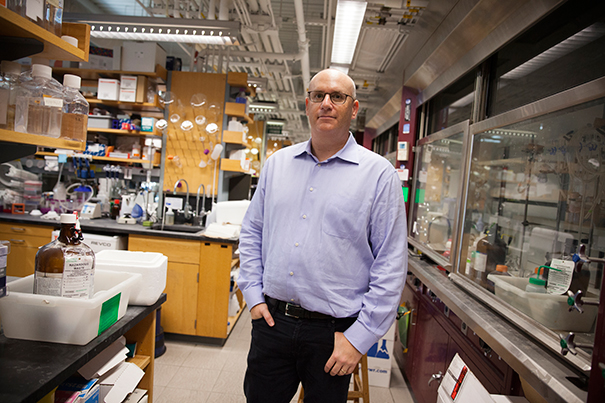
-
Real as a heart attack, almost
“Standardized patients” are trained actors who role-play the sort of diagnostic puzzles regularly faced by practicing physicians. They interact with students at the Tosteson Medical Education Center at Harvard Medical School (HMS).

-
Alcohol and heart risk, by the minute
A study by researchers at the Harvard T.H. Chan School of Public Health shows that moderate alcohol consumption can produce a temporary increase in heart attack and stroke risk.

-
Aspirin found to reduce overall cancer risk
An analysis of data from two long-term epidemiologic studies has found that regular use of aspirin significantly reduces the overall risk of cancer, an effect that primarily reflects a lower risk of colorectal cancer and other tumors of the gastrointestinal tract.

-
Where runners go wrong
A new study out of Harvard Medical School and the National Running Center at Harvard-affiliated Spaulding Rehabilitation Hospital examined why runners get injured so often.
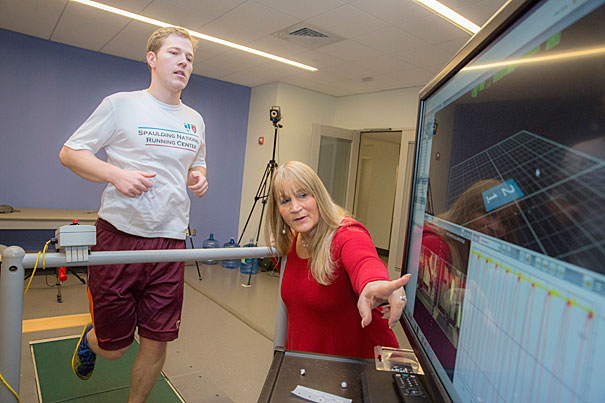
-
High poverty’s effect on childhood leukemia
Children with acute lymphoblastic leukemia who live in high-poverty areas are substantially more likely to suffer early relapse than other patients, according to a new study.
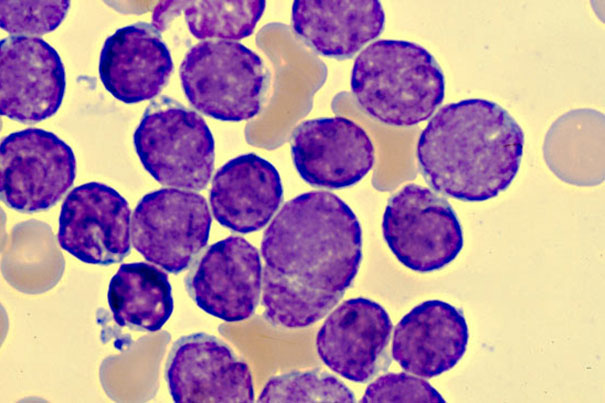
-
The costs of inequality: Money = quality health care = longer life
National health insurance is just a first step to solving the divide between America’s well-off healthy and its poorer, sicker people, Harvard analysts say.
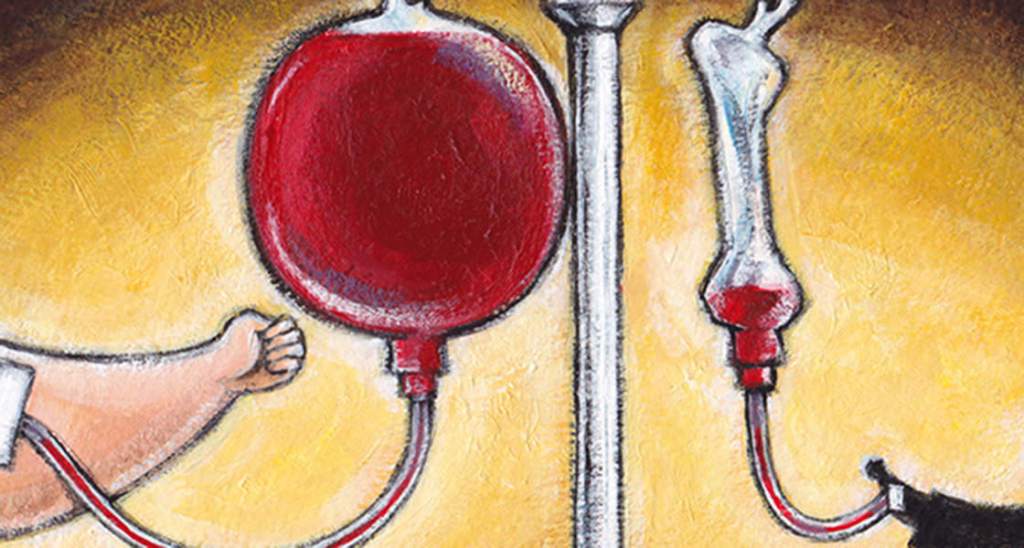
-
Politics biggest threat to malaria effort
America’s top malaria official said that everyday politics presents one of the biggest threats against progress to eliminate the worldwide killer.

-
Discovering predictor for fatal infection in preterm babies
Katherine Gregory, a nurse scientist at Brigham and Women’s Hospital, searched for an answer to the mystery of necrotizing enterocolitis (NEC), a sometimes fatal infectious disease of the newborn gut affecting preterm infants.
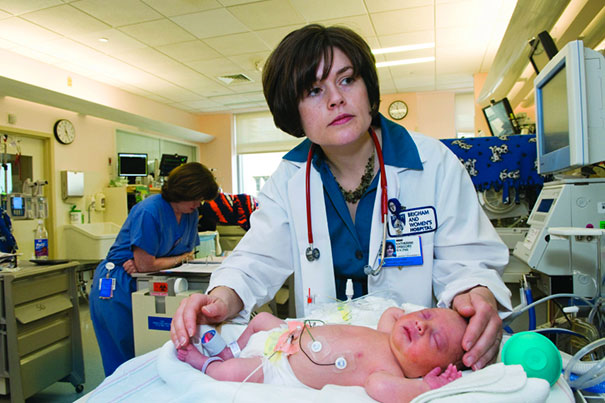
-
Watching sensory information translate into behavior
A state-of-the-art microscope built by Harvard researchers will allow scientists to capture 3-D images of all the neural activity in the brains of tiny, transparent C. elegans worms as they crawl.
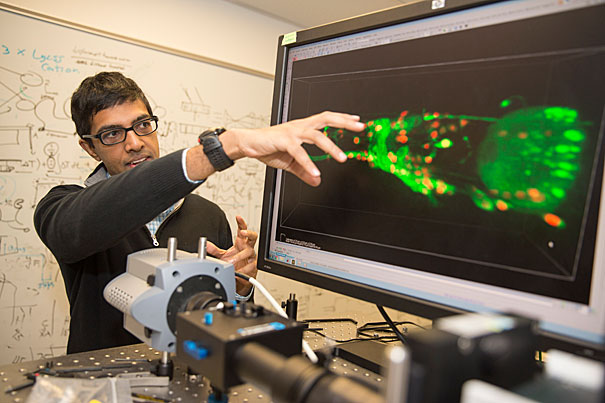
-
Added caution on pregnancy and alcohol
The Gazette spoke with Michael Charness, chief of staff for the Harvard-affiliated VA Boston Healthcare System, about the CDC’s recommendations to sexually active woman of childbearing age: either use birth control or don’t drink.
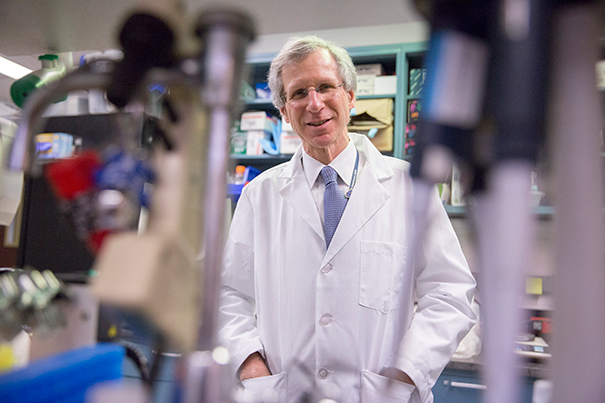
-
Alzheimer’s insights in single cells
A study of plaque production at single-cell level holds promise to help improve Alzheimer’s treatment.
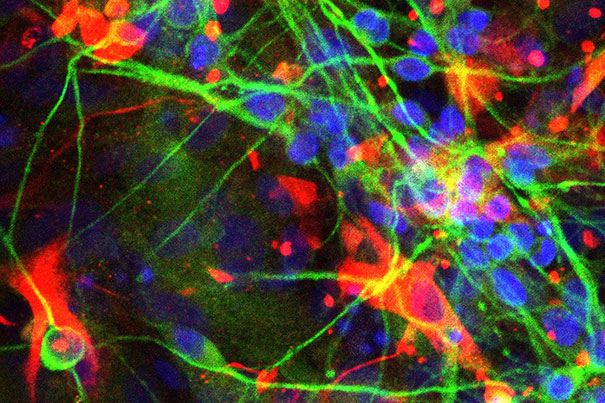
-
New drug target for Rett syndrome
Rett syndrome is a relatively common neurodevelopmental disorder, the second most common cause of intellectual disability in girls after Down syndrome. Building on 2004 findings, Harvard researchers identified a faulty signaling pathway that, when corrected in mice, improves the symptoms of Rett syndrome.
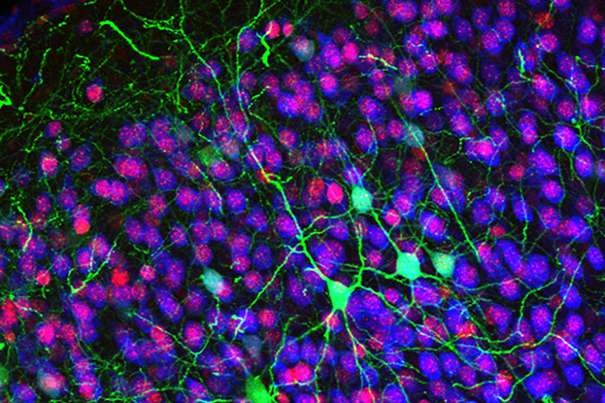
-
Topical treatment on hand for liver spots
Massachusetts General Hospital researchers are working on a topical treatment that may be available for those with seborrheic keratosis (SK), or liver spots. SKs vary in color from tan to black, can be flat or raised, and range in size from quite small to an inch or more across.
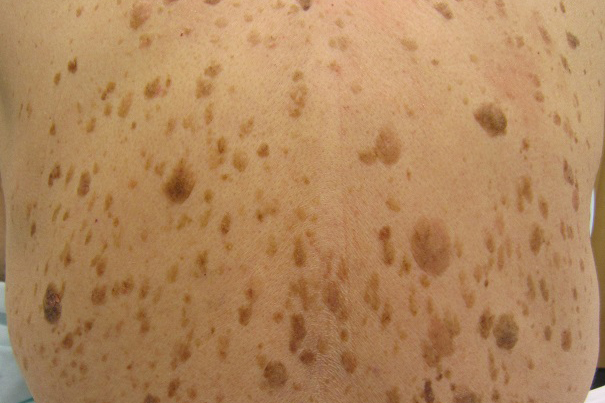
-
A cancer’s surprise origins, caught in action
Researchers have found that cancer begins after activation of an oncogene or loss of a tumor suppressor, and involves a change that takes a single cell back to a stem cell state. They believe this model may apply not only to melanoma, but to most if not all cancers.
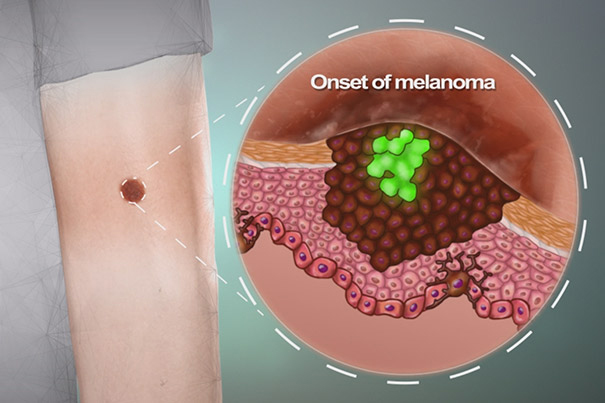
-
Potential diabetes treatment advances
Researchers at MIT’s David H. Koch Institute for Integrative Cancer Research, in collaboration with scientists at the Harvard Stem Cell Institute and several other institutions, have developed an implantable device that in mice shielded insulin-producing beta cells from immune system attack for six months — a substantial proportion of life span.
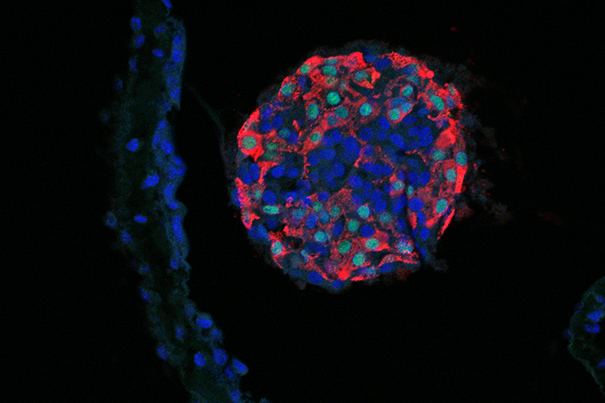
-
$28M challenge to figure out why brains are so good at learning
Harvard’s John A. Paulson School of Engineering and Applied Sciences, Center for Brain Science, and Department of Molecular and Cellular Biology have been awarded more than $28 million to develop advanced machine learning algorithms by pushing the frontiers of neuroscience.

-
Dance that adapts to disabilities
A Graduate School of Education alumna brings her family history into the dance studio as she teaches children with disabilities the art of movement and the rewards they can reap.

-
Oral contraceptives don’t increase risk of birth defects
Oral contraceptives taken just before or during pregnancy do not increase the risk of birth defects, according to a new study by researchers from the Harvard T.H. Chan School of Public Health and the Statens Serum Institut in Denmark.

-
Closer to detecting when and why blood clots form
A research team at the Wyss Institute has developed a novel microfluidic device in which blood flows through a lifelike network of small “vessels.” Using automated pressure sensors and a proprietary algorithm, the data acquired is analyzed in real time and precisely predicts when a certain blood sample will obstruct the blood vessel network.
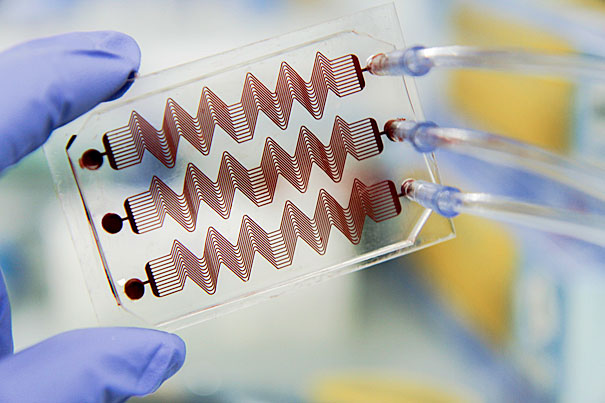
-
Strength in movement
Scientists gave little thought to the neurological effects of dance until relatively recently, when researchers began to investigate the complex mental coordination that dance requires.

-
When one twin gets cancer, other faces higher risk
A large new study of twins has found that a person whose twin is diagnosed with cancer stands an increased risk of also developing a form of cancer.

-
COPD, asthma now can be studied outside the body
A multicomponent, microfluidic small airway-on-a-chip model provides new opportunities to study human lung inflammatory disorders such as chronic obstructive pulmonary disease (COPD) and asthma, and to test preclinical drug candidates outside the human body.

-
Researchers help cells forget who they are
Scientists identify a molecular key that helps cells maintain identity and prevents the conversion of adult cells into induced pluripotent stem cells — a process that would require a cell to “forget” its identity before assuming a new one.

-
How to be your best in 5 minutes
Harvard Business School social psychologist Amy Cuddy explains how tapping into our inner strength can help us make the most of life’s big challenges.

-
A brain link to autism
Using a visual test that is known to prompt different reactions in autistic and normal brains, Harvard researchers have shown that those differences were associated with a breakdown in the signaling pathway used by one of the brain’s chief inhibitory neurotransmitters.

-
Metastasis study illuminates how cancer will ‘hijack’ healthy cells
A study from Brigham and Women’s Hospital offers a new view of how cancer cells extend their reach, co-opting and transforming normal cells through “metastatic hijacking.” The researchers also found that in preclinical models, pharmacological intervention can prevent this from occurring.
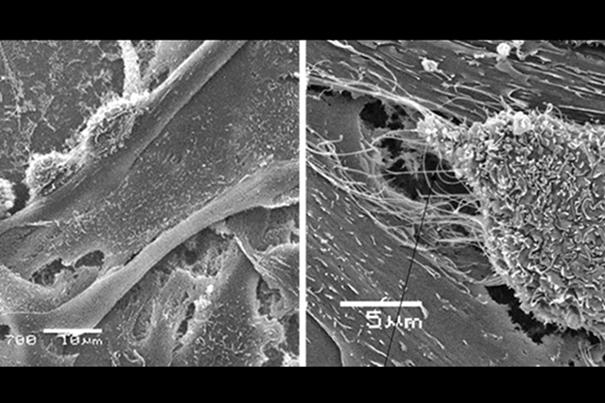
-
Human-gut-on-a-chip model offers hope for IBD sufferers
In a new study, the Wyss Institute’s human-gut-on-a-chip technology is used to co-culture gut microbiome and human intestinal cells, which could spur innovation of novel therapies for inflammatory bowel diseases.

-
Building calm into the day
The Center for Wellness at Harvard University Health Services sponsors a range of meditation options for students.

-
Chemical flavorings found in e-cigarettes linked to respiratory disease
A Harvard study links chemicals used in flavored electronic cigarettes to cases of severe respiratory disease.


